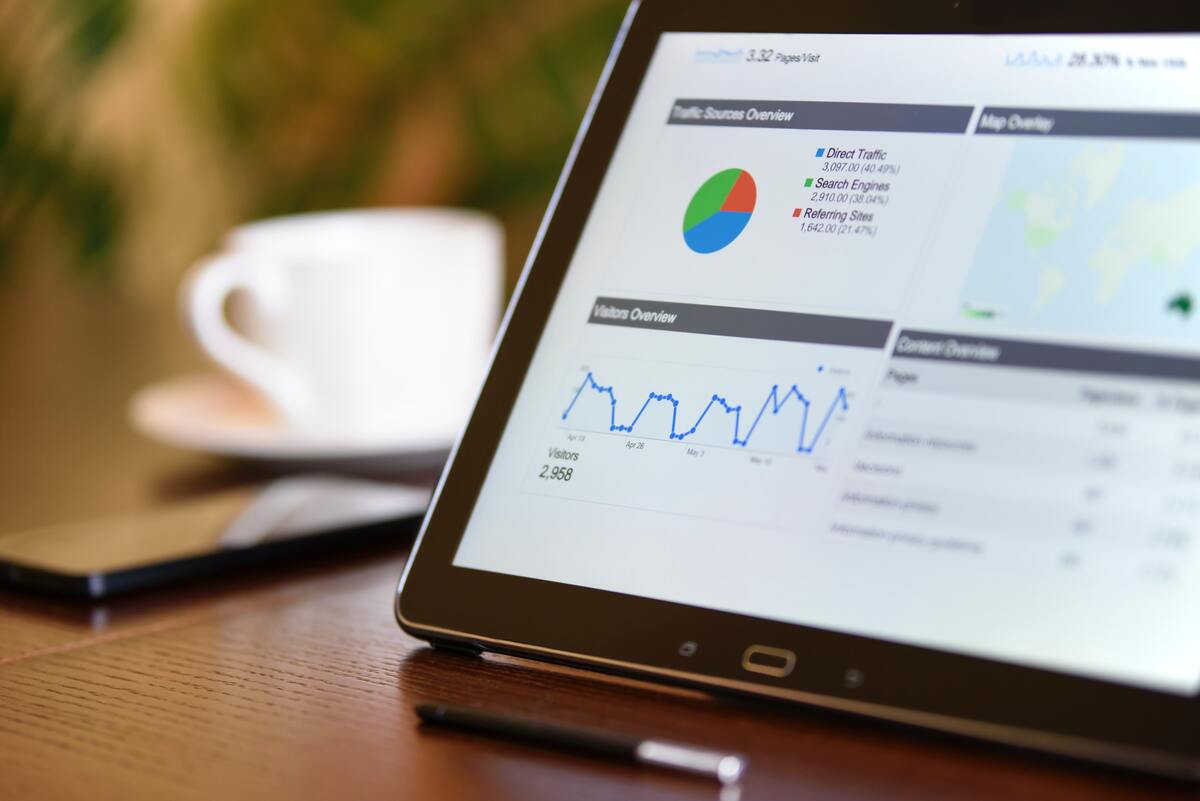RESOURCES
GA4 Explained: The Future of Analytics & What it Means For Your Brand
Google Analytics has announced that the current version of Google Analytics, known as Universal Analytics or GA3, will stop collecting and processing data.
This means that the current version of Google Analytics will soon be a thing of the past. With so many businesses of all sizes relying on Google Analytics for data, this update comes with important implications.
So what kinds of changes can you expect when you make the switch to GA4? What does this mean for your brand? Keep reading to find out.
What's GA4?
By Summer 2023, the new version of Google Analytics, GA4, will be the only version of Google Analytics. Universal Analytics has been around for about 10 years, and it is the gold standard for gathering an analyzing data for web analytics.
However, the internet and user needs have changed dramatically in the past 15+ years, while Google Analytics has remained the same. GA4 is Google’s attempt to look at the current state of the web, the future state of the web, and overall data privacy needs to create a more future-proof data platform.
When Will GA4 Happen?
Google Analytics will stop collecting and processing data on June 30th, 2023. All standard (free) Universal Analytics properties will stop processing new hits on July 1, 2023. All 360 (paid) Universal Analytics properties will stop processing new hits on October 1, 2023.
However, businesses can make the change to GA4 anytime between now and the deadlines listed above. GA4 has a look back window of 14 months. So, if you need year-over-year data – for example, if you need to look back at July 2022 data in July 2023, then you should make the switch asap. Otherwise, you'll be tasked with comparing two different data sets over two different models on two different interfaces.
When it comes to GA4, the sooner you make the switch, the better.
Differences Between Universal Analytics and GA4
With GA4, you'll be able to access similar metrics as with Universal Analytics. Familiar metrics like pageviews, conversions, clicks, and more will all still be measurable and viewable. However, Universal Analytics is based on a rigid, fixed hierarchical structure. Certain dimensions & metrics can only exist within others.
This hierarchical structure worked well when pieces of content were only nested within a pageview and:
- Sessions were nested within a User.
- Pageviews were nested within a Session.
- Events & Transactions were nested within a Pageview.
Additionally, interactions were restricted into Event Category, Event Action, and Event Label. These quickly became outdated categories, but it was deeply entrenched in the larger data model. As a result, we were stuck with naming actions “Click” even when that didn't provide the best, most accurate data.
Put simply, this is not the way the internet functions anymore. GA4 attempts to adapt to the way the internet works now, and create appropriate data models. In fact, GA4 first appeared as “App + Web” properties a few years ago, as Google’s attempt to take mobile app tracking and apply it to the web. Google Analytics took this foundation and reworked it into a completely new data model. This is a brand new perspective on data collection, processing, user experience, and reporting.
Changes to Reporting and Data
In addition to the structural changes, you'll see some other changes in familiar reporting categories. Here are some of the changes you'll notice:
- Acquisition reports are the same, with two additional parameters.
- Engagements are the same, but "bounce rate" is no longer a metric. Instead, GA4 uses "engaged sessions."
- Events shows specific events, and separates pageviews and interactions.
- Events Drilldown is more detailed within each parameter.
- Conversions are now just success events, so users will have to be judicious when deciding what actually counts as a conversion.
- Pages and Screen Class now appear as page titles, and can be toggled between titles to reflect differences in app and web.
- Monetization is the new name for what was formerly Ecommerce, as it now covers web and app.
- Ecommerce Purchases shows item specific purchases and trend lines, and can be filtered by item.
Explorations Feature
GA4 also includes a new Explorations feature. This sections lets a user create highly customizable insights. Use the default templates to create your own Exploration before starting a customized version.
Explorations are login-specific, so they cannot be shared across others in the account.
What's Next?
Making the switch from Universal Analytics to GA4 might seem intimidating. But don't wait. The sooner you switch, the more powerful your data and the more opportunity you'll have to reach your target customers. Code3 is ready to help its clients transition to GA4 using our powerful analytical tools and planning teams. If you're ready to make the change and set your business up for long-term success, contact us today to learn how we can help.
SIGN UP FOR OUR WEEKLY NEWSLETTER

News, Views, and Valuable Resources
Delivered to Your Inbox Each Week


